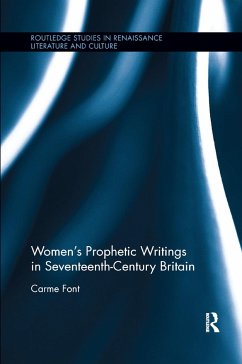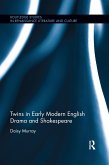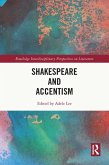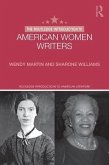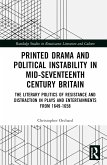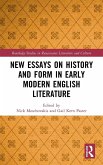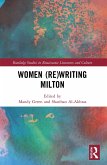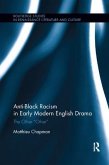This study examines women's prophetic writings in seventeenth-century Britain as the literary outcome of a discourse of social transformation that integrates religious conscience, political participation, and gender identity. The following pages approach prophecy as a culture, a language, and a catalyst for collective change as the individual prophet conceptualized it.
While the corpus of prophetic writing continues to grow as the result of archival research, this monograph complements our particular knowledge of women's prophecy in the seventeenth century with a global assessment of what makes speech prophetic in the first place, and what are the differences and similarities between texts that fall into the prophetic mode. These disparities and commonalities stand out in the radical language of prophecy as well as in the way it creates an authorial centre. Examining how authorship is represented in several configurations of prophetic delivery, such as essays on prophecy, poetic prophecy, spiritual autobiography, and election narratives, the different chapters consider why prophecy peaked in the years of the civil wars and how it evolved towards the eighteenth century. The analyses extrapolate the peculiarities of each case study as being representative of a form of textually-based activism that enabled women to gain a deeper understanding of themselves as creators of independent meaning that empowered them as individuals, citizens, and believers.
While the corpus of prophetic writing continues to grow as the result of archival research, this monograph complements our particular knowledge of women's prophecy in the seventeenth century with a global assessment of what makes speech prophetic in the first place, and what are the differences and similarities between texts that fall into the prophetic mode. These disparities and commonalities stand out in the radical language of prophecy as well as in the way it creates an authorial centre. Examining how authorship is represented in several configurations of prophetic delivery, such as essays on prophecy, poetic prophecy, spiritual autobiography, and election narratives, the different chapters consider why prophecy peaked in the years of the civil wars and how it evolved towards the eighteenth century. The analyses extrapolate the peculiarities of each case study as being representative of a form of textually-based activism that enabled women to gain a deeper understanding of themselves as creators of independent meaning that empowered them as individuals, citizens, and believers.
"In sum, Font's book is a significant contribution to the study of seventeenth-century culture and the writings it produced, and Font's continual focus on issues to do with voice and social change is admirable." -- Rachel Adcock, Keele University
"Font's work is an enthusiastic and thought-provoking contribution to the study of sevevnteenth-century literature, and it helps highlight a complex genre ripe for further investigation." -- Claie McGann, Lancaster University
"Early modern women's prophecy has been the subject of much scholarly interst of late. This fascinating study treats prophecy as genre and culture, expanding our understand of women's speech, lives and writing in the seventeenth century in new and original ways." -- Mary Spongberg, University Technology Sydney
"Font's work is an enthusiastic and thought-provoking contribution to the study of sevevnteenth-century literature, and it helps highlight a complex genre ripe for further investigation." -- Claie McGann, Lancaster University
"Early modern women's prophecy has been the subject of much scholarly interst of late. This fascinating study treats prophecy as genre and culture, expanding our understand of women's speech, lives and writing in the seventeenth century in new and original ways." -- Mary Spongberg, University Technology Sydney

